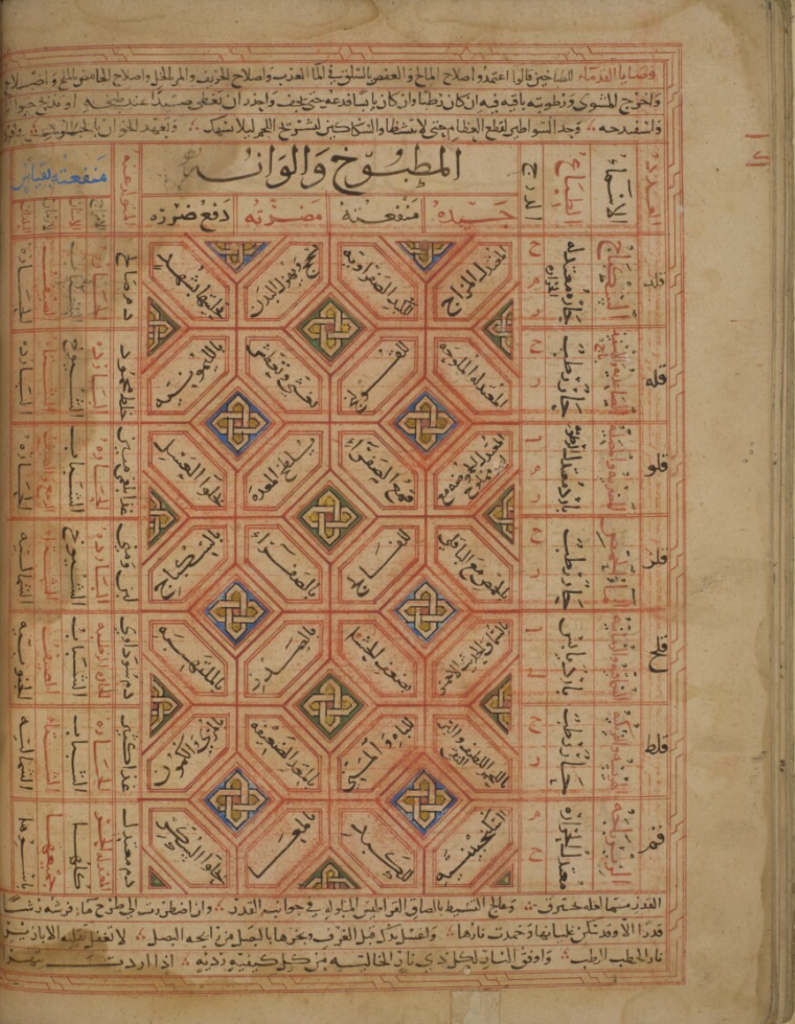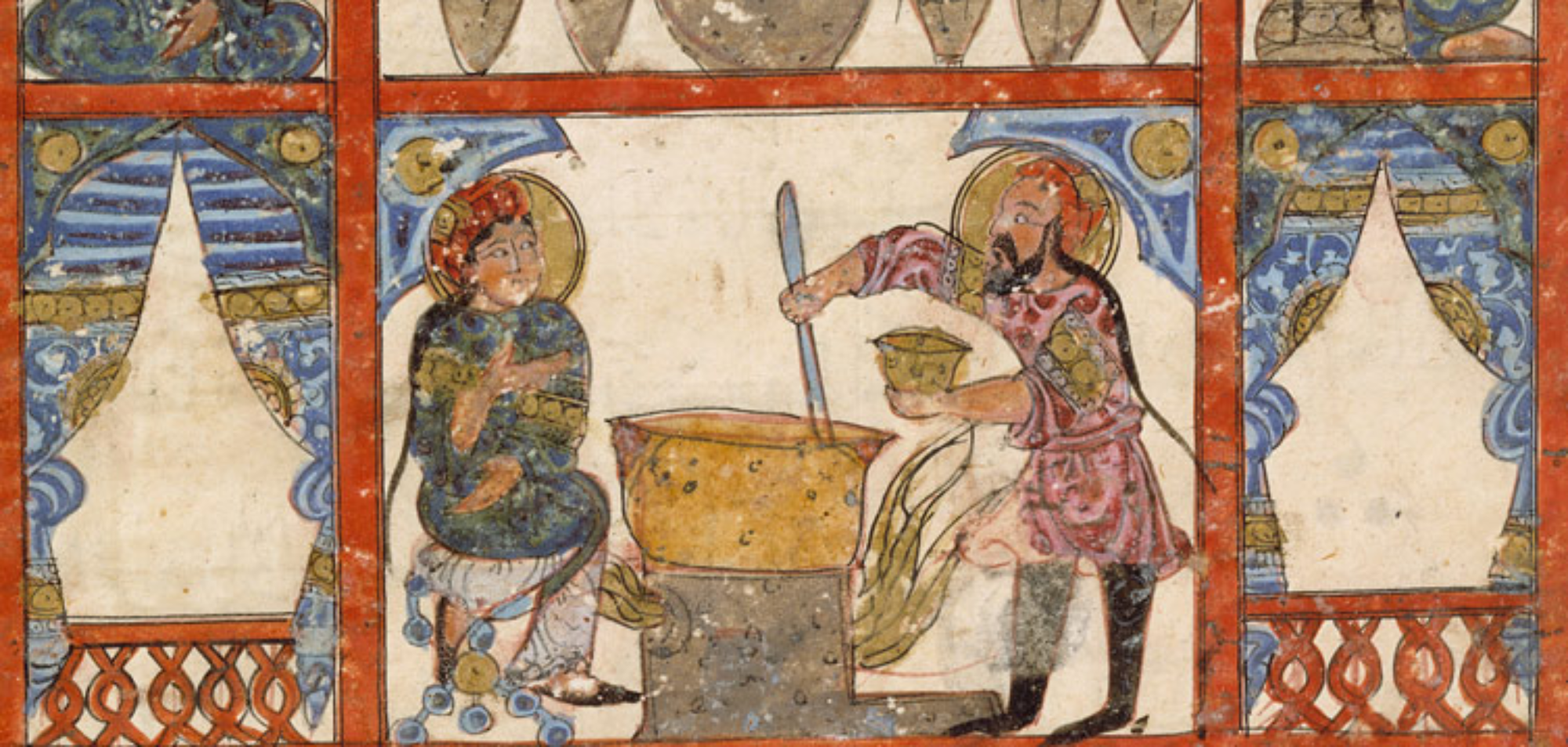The physician, philosopher and theologian Ibn Butlan (d. 1066) was one of the leading scholars of his day. Born in Baghdad, he travelled widely across the Muslim world (Aleppo, Cairo, Constantinople) dispensing his immense medical knowledge. He ended up in Antioch (present-day Antakya, in Turkey), where he became a monk (he was a Nestorian Christan), and spent his final days at a monastery. He is best known for his Taqwīm al-ṣiḥḥa (تقويم الصحّة, ‘The Maintenance of Health’), a hygiene and dietetic synopsis in the form of tables, which gained considerable fame and influence in Christian Europe, with Latin (Tacuinum sanitatis) and German translations being printed in 1531 and 1533, respectively. The book contains therapeutic uses of various materia medica and foods, including dishes. His other works include a medical and dietetic manual for ‘monks living in a monastery or far from towns’, extracts from which found their way into several culinary treatises, and Daʿwat al-atibbāʾ (دعوة الأطبّاء, ‘The Physicians’ Dinner Party’), a humorous critique of quacks.
The Taqwīm al-ṣiḥḥa also contains plenty of cooking and dining advice, some of which was copied in some cookery books. Here are some recommendations for chefs:
Temper saltiness and acridity by boiling in freshwater.
Temper pungency and bitterness with vinegar, sourness with salt, and blandness with spices .
Boil that which is emaciated before cooking it, and coat it with fat before grilling it, and place a pot with freshwater underneath it.
Remove grilled food from the fire while it still retains some moisture.
Do not cover game meat when cooking it.
Do not slaughter an animal on the day it has eaten garlic or onions.
Make sure to remove the scum from meat when cooking it.
Sharpen cleavers to cut the bones to prevent them from shattering, and knives to cut meat so that it does not smell bad.
Scrape the table clean and for peeling onions use a knife that is not used in the cutting of the tharīd.
Use a dedicated ladle and lid for each pot.
Continuously skim off the froth and clean the sides of the pot from anything that can get burnt.
Remedy food that has been burnt by sticking wet paper along the sides of the pot.
If you need to add water [to the pot], sprinkle it in and rub it along the sides of the pot so as to avoid bad smells.
Do not pound spices or almonds in a malodorous mortar, or put the juices in a rusty receptacle.
Do not ladle things out of the pot before it has stopped boiling and the heat has subsided.
Wash your hands before removing food from the pot.
Do not use vinegar or oil that have been in a copper vessel.
Remove the smell of onions on your hands by fumigating the hands with sandalwood.
Make sure to fry spices and onions, as this is what cooking is all about.
Leave meat high in density overnight to tenderize it, and boil it in water and salt.
Avoid fires with fresh and moist wood because the best fire is that which is free from defects.
If you want to quickly cook meat, throw some borax on it, and add wax, fig twigs, and melon peel to the pot.
When it comes to diners, Ibn Butlan, like many other physicians, prescribed a number of things:
Sweets should be eaten at the end of the meal because they remove the greasy residue of food from the mouth, and because they are very balanced.
Avoid eating vinegar after rice, butter milk with radish, or onions with garlic.
Do not have salty foods or cold water after eating fruits.
One should eat light food, such as vegetables and fruits, before heavy food.
Do not eat and drink at the same time.
Have a light meal in the evening and you will be more active the next day.
Have the table cleared while you still feel like eating, to avoid overindulgnce.

